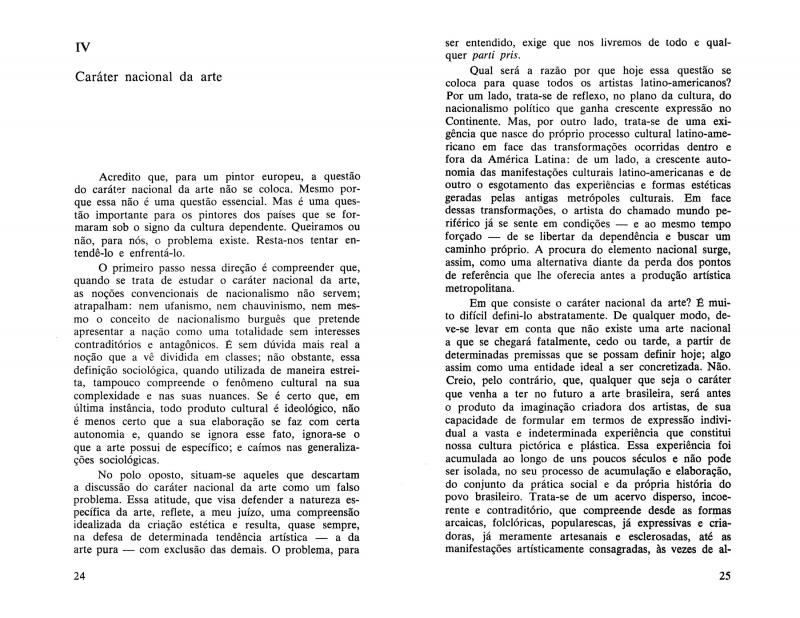This review by the Brazilian art critic [José Ribamar] Ferreira Gullar (b. 1930) addresses the question of the links between avant-garde(s) and underdevelopment in dialectical terms, examining individual and universal facets of the creation of works of art. Seen through that prism, the definition of an avant-garde type of art hinges on an assessment of the socio-cultural characteristics of the particular circumstances in question. This formulation underscores the relevance of the internationalist nature of contemporary art and, in the same vein, questions the role of so-called national expressions at a time of increasing cultural interrelationships among the nations of the world.
The book Vanguarda e subdesenvolvimento: ensaios sobre arte [Avant-garde and Underdevelopment: Essays on Art] was written between 1965 and 1969, during the post-military coup period (1964–85) that overshadowed two decades of life in Brazil. In these circumstances, the author joined the PCB (Brazilian Communist Party) at a time when local leftists were immersed in the process of redirection and self-criticism that, to one extent or another, set the tone for Ferreira Gullar’s essays, and especially for his critical view of imported avant-garde ideas. The author’s Marxist method is inspired by two basic threads in the work of the Hungarian thinker György Lukács (1885–1971): the centrality of the individual in aesthetics, and the premise that both the work of art and the artist are an intrinsic part of specific historical situations.
In reference to this matter and for more information, see by Ferreira Gullar, “Caráter nacional da arte” [doc. no. 807930].

